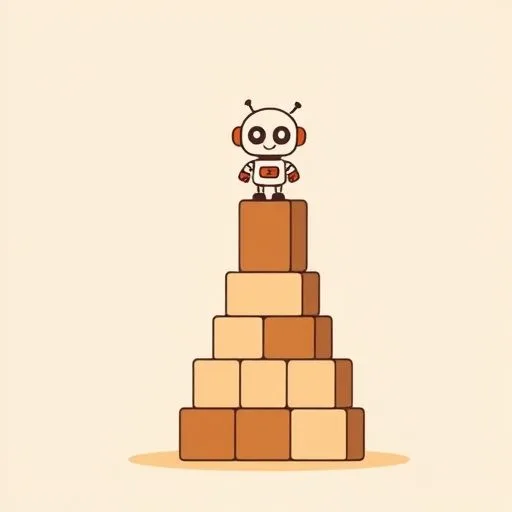
You know that feeling when you’re trying to get out the door for a family walk, but my seven-year-old daughter (in grade 2 this year) insists on tying her own shoes before our 100 m stroll to school—even though it takes forever? We’ll even stop for a quick kimchi pancake–poutine mashup at our corner café—just to prove that slow mornings can taste amazing! That’s exactly what’s happening with AI coding tools like Cursor and Clojure-MCP! New research shows developers using these tools actually take 19% longer to finish tasks. But here’s the thing—this isn’t a glitch in the matrix; it’s pure gold for patience, curiosity, and how we hand the tech-detox baton to our kiddos! Let’s dive into this thrilling journey together!
Why Do AI Tools Like Cursor Slow Us Down?

Picture this: you’re planning a family trip, and you decide to use every high-tech app out there to map the perfect route, book hotels, and find kid-friendly spots. But instead of saving time, you end up scrolling through endless options, comparing reviews, and second-guessing yourself—sound familiar? Just like tying shoes can stretch our morning routine, AI tools stretch our coding flow—let’s explore why.
A groundbreaking 2025 study found that developers using AI tools like Cursor and Clojure-MCP took 19% longer to complete tasks. Yes, you read that right—slower, not faster!
Why? Because these tools, as amazing as they are, introduce friction: time spent crafting prompts, reviewing AI suggestions, and integrating outputs into complex codebases. It’s like when my daughter and I build LEGO sets together—she’s bursting with ideas, but sometimes we have to backtrack, adjust, and try again.
That ‘slowness’ isn’t wasted time; it’s deep learning in action! And guess what? This mirrors how our kids engage with tech every day. They’re not just consuming; they’re creating, experimenting, and yes, sometimes stumbling—and that’s where the magic happens!
How Can Slowness Become a Superpower for Parenting?

Here’s where it gets explosively exciting: this AI slowdown teaches us a profound lesson about raising kids in a tech-saturated world. We often worry about screen time or AI replacing human skills, but what if the real win is embracing the journey—not just the destination?
Think about those rainy afternoons when my little one and I code simple games together. She’s all energy, typing away, and sometimes her code has bugs—lots of them! But each error is a chance to problem-solve, laugh, and learn resilience.
That’s exactly what’s happening with tools like Clojure-MCP: they enable a ‘REPL-driven’ experience where developers (and by extension, our kids) can try solutions instantly, see what works, and iterate—just like a human would!
It’s not about speed; it’s about building confidence and creativity. As parents, we can reframe ‘slowness’ as superpower: those moments when our kids take extra time to figure things out are where they develop grit, curiosity, and ethical tech literacy. It’s not about racing ahead; it’s about growing together, with empathy and hope lighting the way!
What Are Actionable Wins for Blending Tech and Play?

So how do we turn this insight into upbeat, actionable wins for our families? First, let’s celebrate the process, not just the outcome! When your child spends an hour tinkering with a coding app or building a digital story, cheer for their persistence—not just the final product.
Second, blend tech with real-world play: after screen time, head outside for a walk or a park adventure, reinforcing that balance is key. My daughter and I love ‘tech detox’ walks where we talk about what she created—it’s pure joy!
Third, use AI in education as a collaborative tool, not a crutch. Tools like Cursor teach us that review and iteration are vital—so encourage your kids to question AI suggestions, just like they’d question a puzzle solution. This builds critical thinking and ethical awareness.
Finally, infuse hope: the ‘slowdown’ isn’t a setback; it’s a reminder that learning is a journey filled with small, glorious victories. Whether it’s coding, art, or family dinners, every moment of patience plants seeds for a resilient, compassionate future!
FAQs: Your Burning Questions on AI Tools and Kids

Q: Should I worry if my child takes longer with tech tasks?
A: Absolutely not! That ‘slowness’ is often deep engagement—celebrate it! Like the AI study shows, extra time can mean richer learning and creativity.
Q: How can I make tech time more ethical and balanced?
A: Set clear limits, mix screens with outdoor play, and talk about what they’re creating. Emphasize kindness and community in how they use tools—tech should connect, not isolate.
Q: Will AI replace my child’s need to learn basics?
A: No way! Tools like Clojure-MCP highlight that fundamentals matter. Use AI to enhance skills, not replace them—think of it as a fun co-pilot on their learning adventure!
So next time your heart skips at a screen glitch or a slow code compile, remember—we’re all navigating this adventure together, one joyful stumble at a time!
Source: My experience with Cursor and Clojure-MCP, Medium, 2025/09/13 14:15:22
